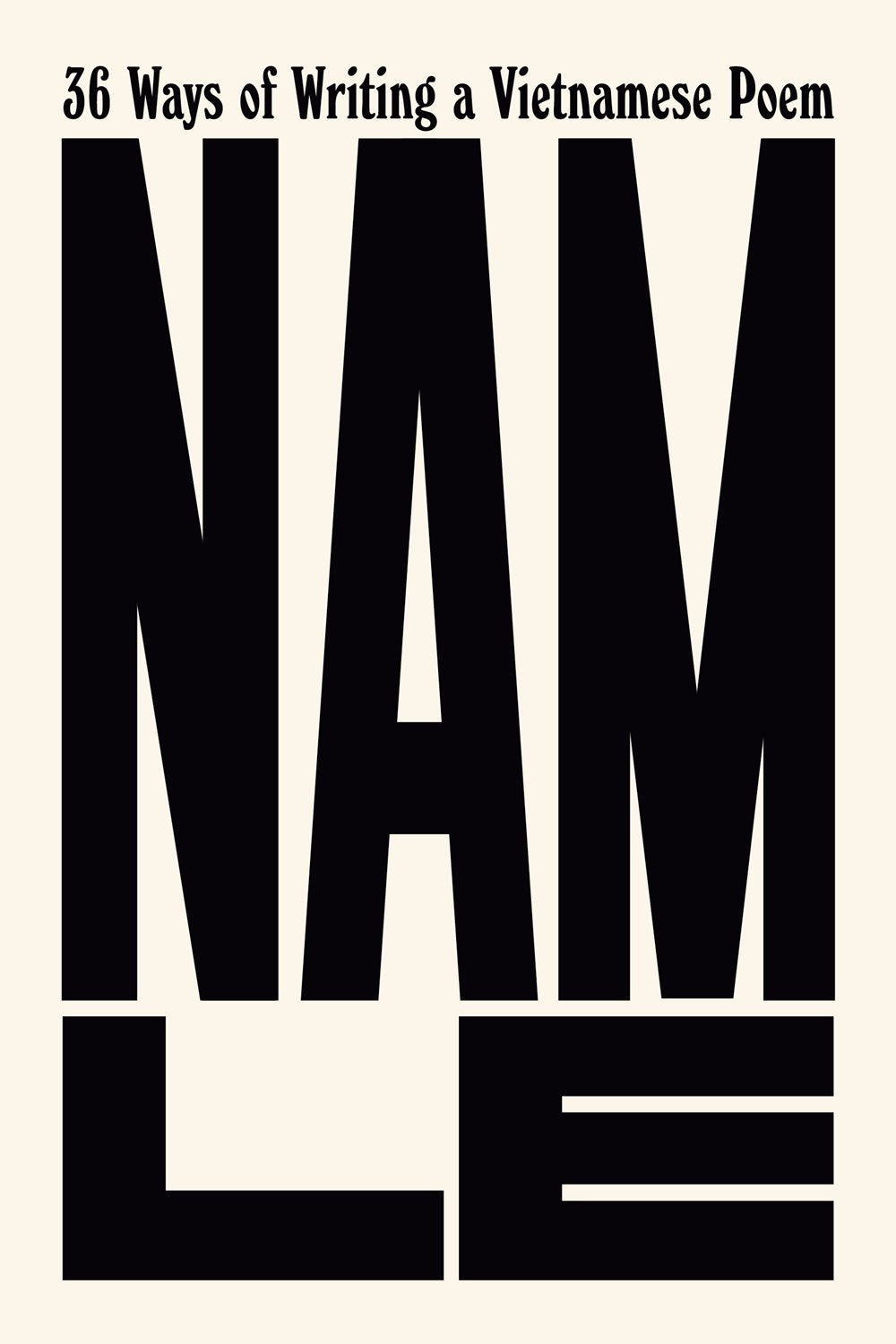1
/
of
1
Golden Hour Books
36 Ways of Writing a Vietnamese Poem by Nam Le (3/5/24)
36 Ways of Writing a Vietnamese Poem by Nam Le (3/5/24)
Regular price
$28.00 USD
Regular price
Sale price
$28.00 USD
Unit price
/
per
Couldn't load pickup availability
An explosive, devastating debut book of poetry from the acclaimed author of The Boat
In his first international release since the award-winning, best-selling The Boat, Nam Le delivers a shot across the bow with a book-length poem that honors every convention of diasporic literature—in a virtuosic array of forms and registers—before shattering the form itself.
In line with the works of Claudia Rankine, Cathy Park Hong, and Theresa Hak Kyung Cha, this book is an urgent, unsettling reckoning with identity—and the violence of identity. For Le, a Vietnamese refugee in the West, this means the assumed violence of racism, oppression, and historical trauma.
But it also means the violence of that assumption. Of being always assumed to be outside one’s home, country, culture, or language. And the complex violence—for the diasporic writer who wants to address any of this—of language itself.
Making use of multiple tones, moods, masks, and camouflages, Le’s poetic debut moves with unpredictable and destabilizing energy between the personal and the political. As self-indicting as it is scathing, hilarious as it is desperately moving, this is a singular, breakthrough book.
In his first international release since the award-winning, best-selling The Boat, Nam Le delivers a shot across the bow with a book-length poem that honors every convention of diasporic literature—in a virtuosic array of forms and registers—before shattering the form itself.
In line with the works of Claudia Rankine, Cathy Park Hong, and Theresa Hak Kyung Cha, this book is an urgent, unsettling reckoning with identity—and the violence of identity. For Le, a Vietnamese refugee in the West, this means the assumed violence of racism, oppression, and historical trauma.
But it also means the violence of that assumption. Of being always assumed to be outside one’s home, country, culture, or language. And the complex violence—for the diasporic writer who wants to address any of this—of language itself.
Making use of multiple tones, moods, masks, and camouflages, Le’s poetic debut moves with unpredictable and destabilizing energy between the personal and the political. As self-indicting as it is scathing, hilarious as it is desperately moving, this is a singular, breakthrough book.
Share


